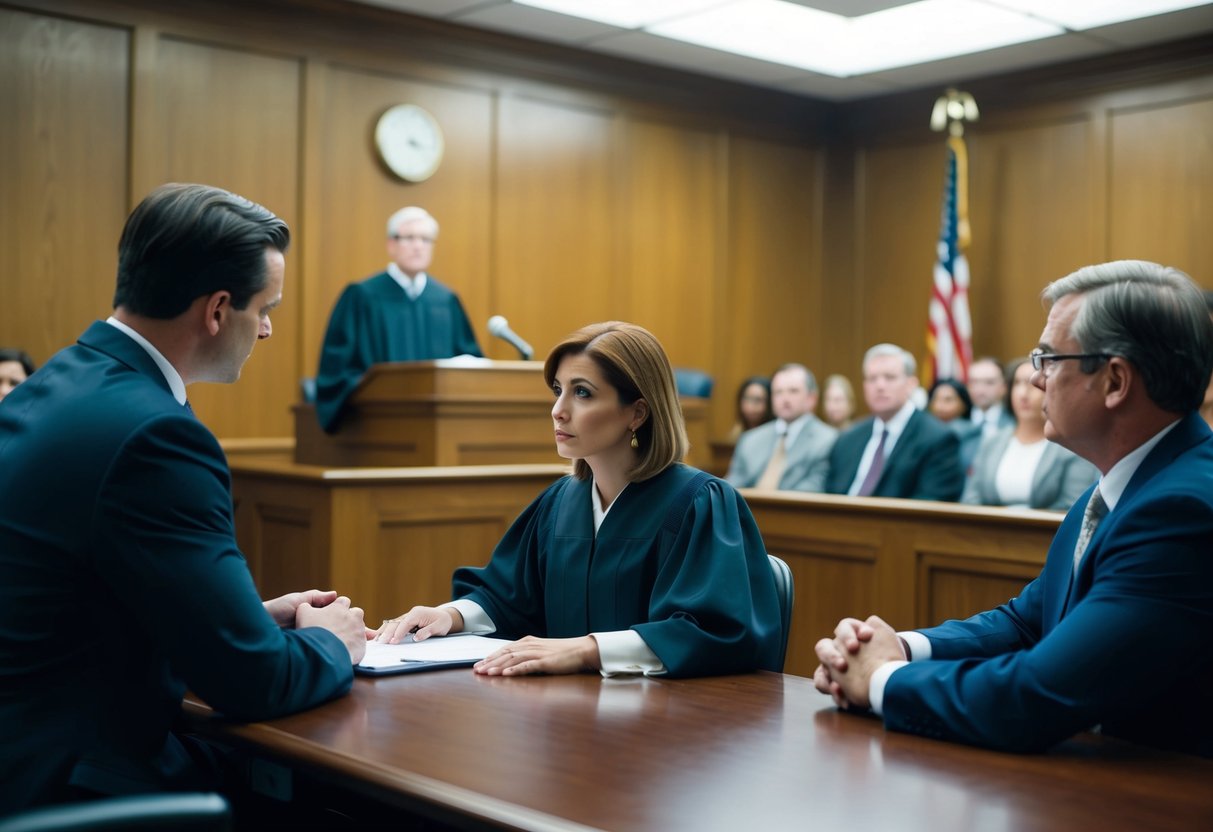Understanding Misdemeanor Charges in Marietta
Misdemeanor charges in Marietta, GA cover a range of less severe crimes. These charges have significant legal consequences, including fines, jail time, and a criminal record.
Distinction Between Misdemeanor and Felony
Misdemeanors are less serious than felonies. Felonies involve severe crimes like robbery, murder, and serious drug offenses. Felonies typically carry harsher penalties, including longer prison sentences and larger fines. In Georgia, misdemeanors might result in up to one year in jail and fines not exceeding $1,000. It’s vital to grasp the difference because it affects the legal strategy and potential outcomes for the accused.
Common Types of Misdemeanors
Common misdemeanors in Marietta include theft, DUI (driving under the influence), assault, battery, trespassing, marijuana possession, and domestic violence. Theft could be shoplifting, which is taking items without paying. DUI involves operating a vehicle while intoxicated. Assault and battery involve threatening or causing physical harm. Trespassing means entering someone else’s property without permission. Drug charges, especially marijuana possession, are frequent. Domestic violence includes physical harm or threats within a household.
Consequences of a Misdemeanor Conviction
The penalties for misdemeanor convictions in Marietta can be harsh. Possible consequences include fines, jail time, probation, community service, and a permanent criminal record. Fines can go up to $1,000. Jail time might not exceed one year. Probation allows the convicted person to avoid jail but must follow strict rules. Community service might be ordered instead of or along with jail time. A criminal record can affect employment, housing, and more, making it critical to address these charges seriously.
Legal Representation in Marietta

Choosing the right legal representation is crucial when facing misdemeanor charges in Marietta. Experienced attorneys can help protect your rights and work towards the best possible outcome.
Choosing the Right Defense Attorney
Finding the right criminal defense attorney is critical. Start by researching local law firms, such as the Holloway Law Group, known for their dedicated and aggressive defense strategies. Look for attorneys with a strong track record of winning jury verdicts in misdemeanor cases. Consider reviews, case outcomes, and their approach to client communication. Contacting them directly can provide insights into their dedication and experience.
The Role of a Criminal Defense Attorney
A criminal defense attorney plays a vital role in protecting your rights. They analyze the evidence, identify weaknesses in the prosecution’s case, and build a robust defense strategy. An experienced attorney can negotiate with prosecutors and, if necessary, represent you in court. They work tirelessly to achieve the best possible outcome, whether it’s a reduced charge, dismissal, or acquittal.
Strategies for a Strong Defense
Effective defense strategies vary depending on the specifics of your case. Your attorney may challenge the legality of the arrest, question evidence, or present alibi witnesses. They might also negotiate plea bargains that minimize penalties. An aggressive and knowledgeable attorney from a reputable firm like the Holloway Law Group will tailor the defense strategy to your unique situation, ensuring your rights are vigorously defended.
Navigating the Legal System

Defending against misdemeanor charges in areas such as Marietta, Cobb County, and surrounding regions requires a clear understanding of the legal process. This involves knowing your rights, the court procedures, and the possibilities for reducing or dismissing the charges.
The Court Process for Misdemeanor Cases
When someone is charged with a misdemeanor, the court process begins with their arrest. After the arrest, the individual is either released or kept in custody until their first court appearance. This appearance is an arraignment where they are formally charged and asked to enter a plea.
If the accused pleads not guilty, the case then moves to a pre-trial phase. During this phase, both the defense and the prosecution gather evidence and call witnesses. A judge may also be involved in determining the validity of certain pieces of evidence, like in cases of alleged illegal search.
The final step is the trial, where both sides present their arguments. The judge or jury then decides if the accused should be convicted or acquitted. If convicted, the accused can appeal the decision.
Rights of the Accused
Those facing criminal charges have specific constitutional rights that must be respected throughout the judicial process. Key rights include the right to remain silent and the right to an experienced attorney.
The right to remain silent helps prevent self-incrimination during the investigation and trial. They can also call witnesses in their defense, ensuring their side of the story is heard. If there are any signs of an illegal search, this can potentially get the evidence thrown out or the charges dropped.
Understanding these rights is crucial for anyone navigating a criminal case, as they provide a foundation for building a strong defense and can heavily influence the outcome of the trial.
Potential for Charge Reduction or Dismissal
An essential aspect of dealing with misdemeanor charges is the potential to have the charges reduced or dismissed. Working with a knowledgeable attorney increases the chances of identifying weaknesses in the prosecution’s case, which can lead to dismissal.
In some cases, the defense and the prosecutor may negotiate a plea deal that results in lesser charges or penalties. This is particularly possible if the prosecution doesn’t have a strong case.
Judges also have the authority to dismiss charges under certain circumstances. For example, if there is insufficient evidence or procedural errors, charges may be dropped, sparing defendants from a criminal conviction and possible incarceration.




